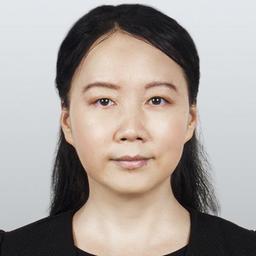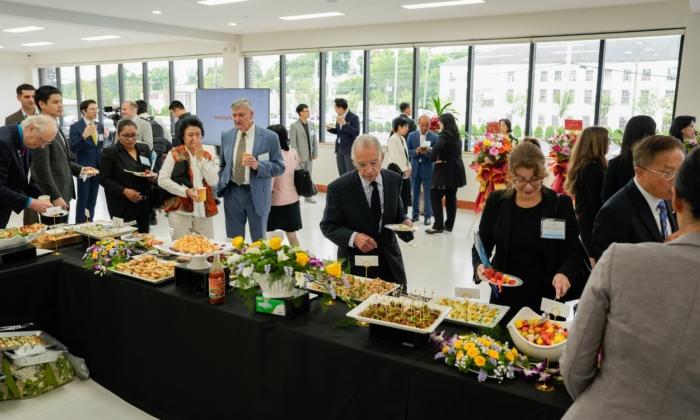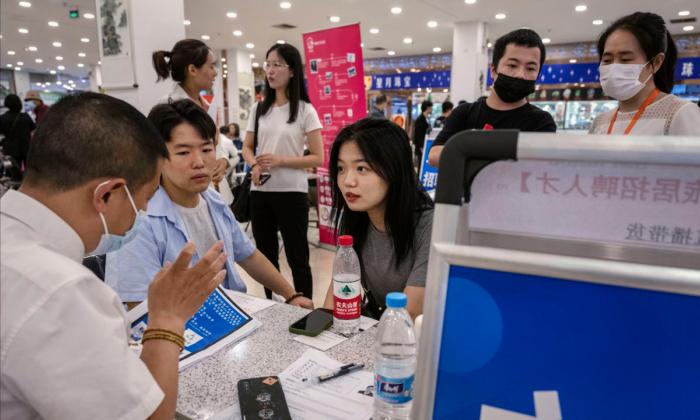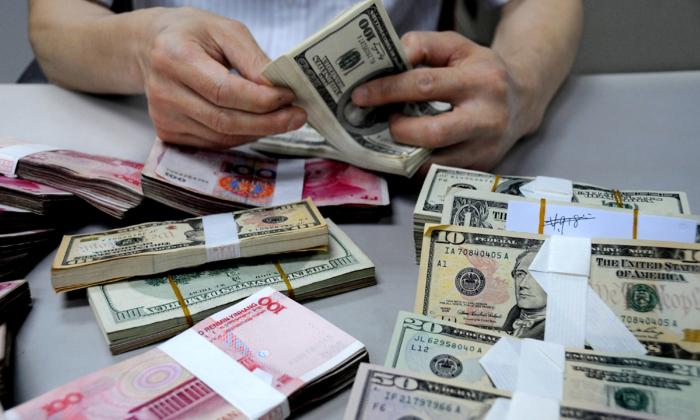Following U.S. House Speaker Nancy Pelosi’s visit to Taiwan in early August, the Chinese Communist Party (CCP) threatened to normalize military exercises in the Taiwan Strait. But this action could disrupt China’s own critical supply chain.
China is the biggest consumer of semiconductor chips in the world, but its production rate is less than 20 percent of its needs.
According to an October 2020 report from the Congressional Research Service, China accounts for 60 percent of the global semiconductor demand, and more than 90 percent of the semiconductors used in China are imported or manufactured locally by foreign companies.
In particular, electromechanical products, which account for half of China’s export revenue, including automatic data processing equipment, cellphones, home electronic appliances, automobiles, and ships, all rely on chips as an essential component.
China’s chip imports have surged as a result of the huge imbalance between supply and demand.
In 2021, China’s import of integrated circuits (IC) reached $432.5 billion. In the first seven months of this year, China’s IC imports increased another 5 percent year-over-year to $244.7 billion, accounting for 15.6 percent of China’s total imports and significantly exceeding the country’s crude oil imports ($212 billion) and cumulative agricultural imports ($135.4 billion).
China’s reliance on chips manufactured in Taiwan cannot be overstated.
As the world’s largest chip foundry, Taiwan plays a critical role in the global semiconductor supply chain, especially for high-end chips, in which Taiwan dominates global trade with a more than 90 percent market share.
US Sanctions
In the global semiconductor supply chain, the United States controls the upstream supply chain, such as, chip design and semiconductor machinery manufacturing.Currently, the United States is further restricting exports of key semiconductor equipment and technology to China.
In December 2020, the U.S. Department of Commerce’s Bureau of Industry and Security added China’s largest chip manufacturing company, Semiconductor Manufacturing International Corporation (SMIC), to its list of export-controlled entities, prohibiting the sale of chips and manufacturing equipment to SMIC for chips 10 nanometers or less in size.
In early August, two major U.S. semiconductor equipment manufacturers told Bloomberg that Washington is determined to curb the CCP’s economic ambitions and is tightening exports of chip manufacturing equipment to China.
On Aug. 9, U.S. President Joe Biden signed the Chip and Science Act 2022, to prevent the flow of funds to China’s semiconductor industry. The act, in addition to providing subsidies to U.S.-based chip companies, stipulates that companies receiving such subsidies cannot expand chip capacity in China for advanced processes below 28 nanometers for 10 years. In other words, they cannot invest in advanced semiconductor manufacture in China.
Self-Reliance Campaign
In 2015, the CCP launched the “Made in China 2025” campaign, with the goal of increasing China’s IC self-reliance ratio to 70 percent by 2025. Over the years, a total of 1.5 trillion yuan (about $232 billion) has been raised, but China’s chipmaking has made slow progress.According to IC Insights, from 2014 to 2021 China’s IC production share of the Chinese market increased from 15.1 percent to 16.7 percent, and was expected to increase to 21 percent by 2026, which is still far from the CCP’s goal of chip autonomy.
SMIC, which represents the highest level of Chinese chip manufacturing, has been poaching Taiwanese IC talents all along, especially former Taiwan Semiconductor Manufacturing Company (TSMC) R&D veterans. Despite recent rumors that SMIC is secretly mass producing 7 nanometer chips, the company has never listed chip processes below 14 nanometers in its annual report.
Beijing’s hostility toward Taiwan is already driving Taiwanese talent away from mainland China. At the same time, the United States, Japan, European countries, and India are ramping up the building of domestic chip plants, which may attract Taiwanese companies to expand into these countries.





